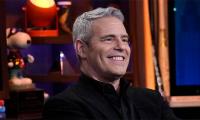Let the mouths move, the agenda churners busy themselves, and the chatterers pretend to move mountains even as they remain indifferent. As if one needed to be reminded exactly what the World Economic Forum meeting at Davos is all about.
Deals might be done, platforms sketched. And these are done within a certain hierarchy of status, suggesting that this is hardly the free wheeling forum advertised. As Jennifer Rankin describes it, “Getting an invitation is a sign you have made it – an elaborate system of badges reveals your place in the Davos hierarchy.”
Such discussions also take place, rather overwhelmingly, between men; a mere 17 percent of participants are women. The chat show also involves various groups that reflect the global hierarchy of influence: the largest numbers stem from Western Europe, followed by the United States. Africa and Latin America supply the least number of delegates.
Whether the points made at the meet are of quality is never critically engaged. It is simply assumed to be worthy if they make the cut. The WEF’s creator, Professor Klaus Schwab, who still runs the event, calls it “a platform for collaborative thinking and searching for solutions, not for making decisions”.
Such gatherings have varied in their temper, though they never deviate from the overwhelmingly corporate nature of the enterprise. At its initiation, it was European businessmen who gathered to chew over the significance of practices in the US corporate room. In 1974, political leaders were added to the guest list. The content hardly improved, though it did provide an ominous sign about the link between technocrats and capital. It is a link that has never been broken.
The Davos bridge to anything remotely relevant to communities and societies more broadly speaking is tenuous at best. At has been deemed dated, passing into costly obsolescence. “Classic plays have their fools,” claimed John Ralston Saul, “globalisation had Davos.”
For all that, the Swiss retreat has managed to create a false aura of influence beyond its limited guest list. “The only reason I’m here, and I shouldn’t be here” according to Oliver, is the “trust” he has with the public. This is a point that is hard to sustain, though the once Naked Chef may well be genuine about it. Being honest at Davos, however, tends to be a far more difficult proposition than, say, finding the Higgs Boson.
The tones at the current conference vary between the utopian and dystopian, though they always slant towards ‘working’ suggestions on such topics as poverty and security. But every platform worth its promotion on a global scale tends to find an opening at the WEF in the hope of ventilation rather than resolution.
Bubbling away on the discussion panels is the topic of refugees, a monster of a problem remains suspended. But the Davos-WEF approach is not going to be a place for recommendations. Instead, we are treated to an echo-chamber of reassured narratives, the sort that ignore growing global inequality and the increasing toasting of the earth. The latter is hardly changed by the pop-tart efforts of Al Gore and singer Pharrell Williams to get business leaders to move from their cold cuts.
This could be gathered in points made by Federica Mogherini, EU Foreign Policy chief, which tended to encapsulate a serious point with much piffle in a chat to CNN’s Christiane Amanpour. We are all in agreement, she suggested, on how to deal with refugees, we just have not been quick enough.
The problem with Davos is the problem of unreality and distance. People go to Davos to talk to people who go to Davos and what people who go to Davos do. There is no incentive to alter what is always being discussed as alterable, even though bun fights take place over what should be placed on the discussion list.
This article has been excerpeted from: ‘The meaning of Davos man: the world economic forum’.
Courtesy: Counterpunch.org
A woman walks past a building of the International Monetary Fund. — AFP/FileThe annual and spring meetings of the...
Late Benazir Bhutto's daughter Asifa Bhutto Zardari addresses the Christian community in Bihar Colony on January 23,...
Representational image. — PexelsWater is an important scarce natural resource that is required for several everyday...
Pakistani employees of online marketplace company Kaymu at work in Karachi. — AFP/FileThe true spirit of development...
India uses Afghanistan as a backstage area to carry out terrorist attacks against Pakistan
Another report by the Pakistan Institute of Peace Studies states that 78 per cent of attacks have been carried out by...







